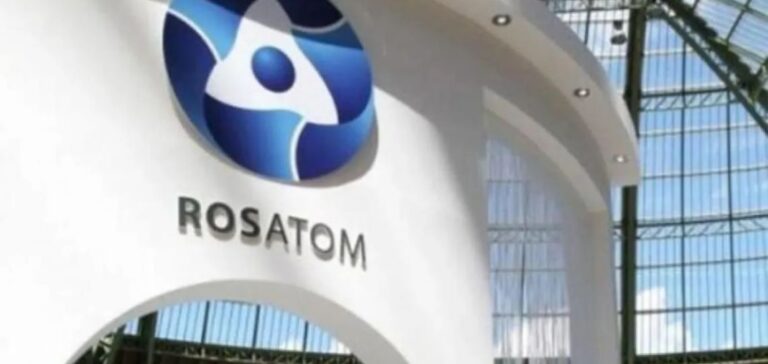Since February 2022 and the beginning of the conflict in Ukraine, Western sanctions against Russia have primarily targeted the oil and gas sectors, yet have not significantly affected the nuclear sector, dominated by the Russian state-owned corporation Rosatom. Benefiting from this particular situation, Rosatom has continued to secure and develop substantial nuclear projects worldwide while maintaining stable enriched uranium supplies to the West—a notable economic paradox in the current geopolitical context.
Rosatom’s Global Nuclear Project Expansion
In Africa, Rosatom is actively developing several strategic projects. In Egypt, construction of four VVER-1200 reactors at the El Dabaa nuclear power plant has been progressing on schedule since July 2022. In Mali, in July 2024, Rosatom signed multiple agreements with local authorities for the construction of a small modular nuclear reactor (SMR). Algeria, for its part, strengthened cooperation starting in March 2023 through a partnership between the Algerian Atomic Energy Commission (COMENA) and Rosatom.
Asia also represents a major strategic area for Rosatom, particularly with China, where construction of the Xudapu-4 reactor began in May 2022. In India, cooperation continues at the Kudankulam nuclear power plant, confirming the importance of the Indian market for the Russian company. Vietnam has decided to relaunch a significant nuclear program in 2025, in partnership with Rosatom, after several years of pause.
In Latin America, Bolivia is strengthening ties with Rosatom through the Nuclear Technology Research and Development Center (CIDTN) in El Alto, partially operational since 2022 and expected to reach full capacity by 2025.
In Europe, despite tensions, Hungary continues to expand its Paks nuclear power plant without significant disruption, supported technically by Rosatom, demonstrating that civil nuclear trade continues despite political and economic restrictions.
Strategic Continuation of Enriched Uranium Exports
Alongside its international project network, Rosatom continues to ensure a regular supply of enriched uranium to the West. In the United States, despite a gradual import ban set for 2028, imports of Russian enriched uranium currently continue under special licenses. For example, Tenex, a Rosatom subsidiary, recently delivered 100 tons of enriched uranium to the U.S. port of Baltimore in February 2025.
In Europe, imports of Russian nuclear fuel by the European Union nearly doubled from 2022 to 2023, increasing from 314 to 573 tons. Germany alone increased its imports by 70% during the same period, confirming growing dependence despite efforts to diversify supply sources.
Internal Challenges and Maintaining Competitiveness
This positive momentum, however, conceals significant internal challenges at Rosatom, particularly in human resources. To support international growth and existing projects, Rosatom must hire approximately 350,000 new employees by 2030. Despite substantial investments in training and international partnerships (20 academic programs across 13 countries), the company struggles to recruit enough specialized young graduates.
To address these critical challenges, Rosatom is also making substantial investments to improve living conditions in its 31 historic nuclear cities across Russia, aiming to stabilize and retain key personnel. These cities, once isolated, now benefit from programs improving access to healthcare, education, and essential infrastructure—a strategy intended to sustainably secure the talent needed by the sector.
These realities clearly underscore Rosatom’s capability to continue its global expansion despite political and economic constraints imposed on Russia, revealing a robust nuclear sector capable of largely bypassing conventional energy sanctions due to its unique strategic character.






















